
Youth climate activists from around the world are gathered in Cancún this week to push for a binding climate deal. Democracy Now! spoke to several of them on Monday at Cancunmesse, the main hub of NGO activity here at the U.N. climate talks.
WALTER PERRIATTI: My name is Walter Perriatti. I am 12 years old. I come from Belize. I am here to make the world leaders to remember, while they’re doing their negotiations, to remember about the children that are suffering around the world. In my country, it causes a lot of floods and hurricanes, very — that more unusual than — we used to have floods and hurricanes, but now floods are happening in places that it never did before.
ROSE CORALIE NORRIS: My name is Coralie Norris. I’m from Haiti. I’m 14. And I work with UNICEF, and I’m a climate ambassador. In my country, climate changes affect our daily life. And since I was born, I knew more than — I’m 14, and I know — I lived through more than 14 disasters. I searched. And if I came here today, it’s because just I’m a survivor, but everyone can do that like. We had the earthquake in January, and in less than one month or two months — I’m not sure — we had Tomas, the hurricane, and it’s added the problem of 1.5 million people living under tents ten months after the earthquake.
ABHISHEK SHRESTHA: [inaudible] Abhishek, and I’m with Nepalese Youth for Climate Action, and I’m leading the Nepalese youth delegation coordinator. And I’m also the part of the South Asian youth delegation.
Nepal is the fourth-most vulnerable country of the climate change, and this is the data that — the recent data. And the major impacts of climate change in Nepal is like mountains, and Nepal is a mountainous country, and it’s like lots of the people, not only in Nepal, the whole South Asia region, depends upon the mountains of Nepal. Like, mountains of Nepal provide water to 1.5 billion people of Asia. That is one-fourth of the world population. And if the climate change goes on this way, then there will be no glacier maybe in 50 or 60 years. So then there will be the crisis for water, and then definitely there will be the world war for water. So it’s like 1.5 billion people are depending upon the water that comes out from the Himalayan region of Nepal.
- JAVIER DIAZ:* [translated] Hello. My name is Javier Diaz. I’m part of the organization 350.org. And I’m here in Cancún to put pressure on the delegates, who have come here to make decisions for COP16. They must take real decisions, which they are not doing now. And they are responding to the interests of organizations tied to the oil industry. This demonstration was to send a message to these people who make decisions and that they save our mountains, because they are in danger.
In Mexico, one problem is that we have been greatly impacted by each hurricane being stronger than the last, and the sea level is rising. For example, in the city of Tabasco, the sea level is rising, and the people need to migrate to other places, because their homes are in danger. So, in this way, we are giving the delegates a wake-up call, so that they take real decisions and do something for all the people. There are hundreds of thousands of lives at stake.
PRITI RAJAGOPALAN: Hi. My name is Priti. I’m from the Indian youth delegation, and this is my first COP. And I represent the Indian Youth Climate Network.
India has — it has a lot of problems. We have hot Himalayas, and if that starts melting, we’re going to have a terrible amount of problems around the whole region. And we have a lot of issues around the coastal areas. And we’ve got so many issues there.
So, but we’ve come up with a lot of NAPA plans. That’s the National Adaptation Policies. And also the NAMAs are pretty good. So we are a very important part of the negotiations. And also, our government — since I’ve spoken to our environment minister — our government has a meeting of LDCs in our country, and we are going to give two scholarships per country to every LDC for a green technology transfer and to help them with coastal mitigation issues.
ISOBEL TARR: Hi. My name is Isobel Tarr. I’m here in Cancún representing U.K. Youth Climate Coalition. I’m 22 years old. And I’m here as part of the international youth constituency.
I’m wearing this T-shirt because — this “I heart KP” T-shirt, because although we recognize that there’s plenty of problems with the KP and it’s not the ideal solution at the moment, it is the groundwork for the solutions that we want to see. It’s the only legally binding thing — it’s the closest thing that we have to something that is legally binding on emissions reductions.
And at the moment, what we are seeing is a move on the majority of some of the leading countries in the negotiations away from the Kyoto Protocol and a focus on the long-term cooperative action, which is obviously important, but if we don’t have the groundwork for emissions reductions for South Africa in the coming year, we are going to struggle to find a legally binding extension of the Kyoto Protocol, which, for the problems that need ironing out with it, is the only thing that we’ve got. And so, we’re very concerned that we may find ourselves in a situation next year where countries have no base from which to work on, in terms of emissions reductions, if some of the key countries start moving away from this.

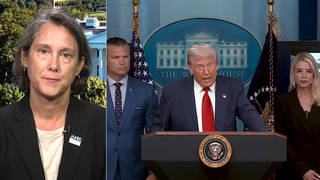
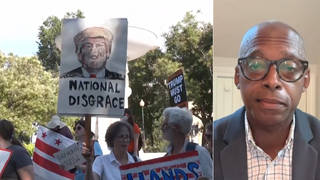
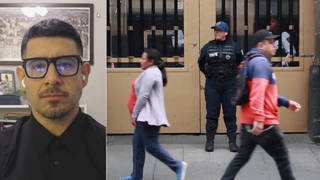
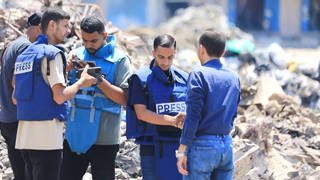





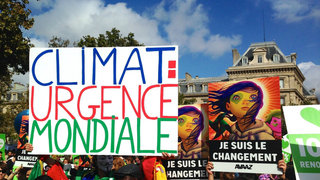

Media Options